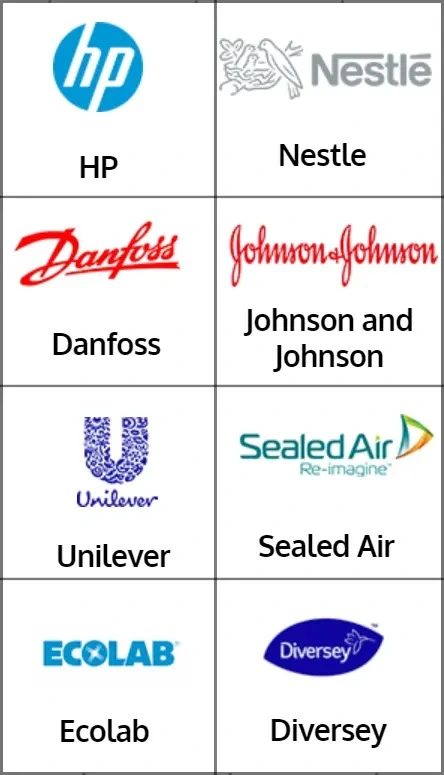Product
Threonine Price Trend and Forecast
Threonine Price Trend and Forecast
Threonine Regional Price Overview
Get the latest insights on price movement and trend analysis of Threonine in different regions across the world (Asia, Europe, North America, Latin America, and the Middle East & Africa).
Threonine Price Trend for Q2 of 2025
Asia
In Q2’25, the threonine market in Asia remained relatively stable after experiencing a sharp drop earlier in the year. The price direction showed signs of flattening out, with offers holding steady.
Threonine Price Chart

Please Login or Subscribe to Access the Threonine Price Chart Data
Despite the announcement of new U.S. tariffs, local Asian demand and production levels helped maintain balance. Chinese suppliers continued to offer competitive prices, which discouraged any major upward movement. The overall sentiment in Asia was cautious but steady, with no strong buying pressure pushing prices up.
Europe
Europe saw stable threonine pricing throughout the second quarter. Most of Q2 demand was already covered by earlier contracts, which helped reduce market volatility. The impact of U.S. tariffs didn’t directly affect European prices, but indirect pressures from global oversupply and competitive Chinese exports continued to weigh on the market.
Additionally, ongoing anti-dumping measures against Chinese-origin amino acids influenced sourcing strategies. However, pricing remained largely unchanged during the quarter, supported by predictable demand and manageable inventory levels.
North America
In North America, the threonine market faced mixed conditions in Q2. The newly announced U.S. import tariffs on Chinese goods created uncertainty, but no significant price reaction occurred during the quarter. Instead, buyers relied heavily on existing inventories and adopted a cautious purchasing strategy.
Oversupply, sluggish feed demand—especially in poultry and swine—and competitive import offers from China all contributed to downward pressure on prices. Overall, the market stayed soft, with limited interest in new bookings as Q3 approached.
Analyst Insight
According to Procurement Resource, any upward movement in Threonine prices will likely depend on reduced Chinese production or freight cost stabilization. Otherwise, oversupply and weak demand may keep the market flat in Q3.
Threonine Price Trend for Q1 of 2025
Asia
Throughout Q1’25, threonine prices in Asia experienced significant upward pressure. Chinese producers, who dominate regional supply, faced multiple challenges including rising raw material costs and persistent energy price inflation. This resulted in tighter margins that were passed down the supply chain. Despite these pressures, demand remained steady, particularly from the growing poultry production sector which helped maintain price stability in certain markets.
The regulatory environment also played a role, as domestic producers maintained strong market positions while some export markets became more challenging due to trade tensions. Southeast Asian buyers faced higher import costs due to logistics disruptions, with temporary blockages in shipping routes affecting delivery times and increasing freight expenses.
Europe
The European threonine market was characterized by volatility and strong price increases in Q1’25. The implementation of anti-dumping duties on Asian amino acids significantly altered supply dynamics, forcing importers to diversify their supplier base. This regulatory shift triggered immediate price jumps as European buyers scrambled to secure alternative sources.
German and French buyers particularly felt this impact, with many turning to South American suppliers despite higher logistics costs. The quarter also saw increased interest in regional production capacity, though existing facilities struggled with high energy costs. Overall, the European market experienced among the highest percentage increases globally, with prices rising steadily throughout the quarter as inventories tightened.
North America
North American threonine markets showed more stability than other regions during Q1’25, though prices still trended upward. The market benefited from relatively stable domestic production, though manufacturers faced challenging input costs that compressed margins. American producers needed to balance rising raw material expenses against competitive pricing pressure.
Trade tensions created uncertainty regarding Asian imports, leading many larger feed companies to secure longer-term contracts with domestic suppliers. Canadian markets closely followed US trends, with both countries seeing strong demand from the livestock sector despite higher overall feed costs. Supply chain resilience improved compared to previous quarters, helping moderate price volatility.
Analyst Insight
According to Procurement Resource, Threonine prices are expected to stabilize in coming quarters as supply chains adapt to new trade patterns and regulatory environments. Development of alternative production technologies focusing on sustainability may help reduce costs long-term, while demand growth from pharmaceutical and supplement sectors could create new market dynamics.
Threonine Price Trend for Q4 of 2024
Asia
The Asian Threonine market showed significant volatility throughout Q4’24. Chinese producers, who dominated the supply landscape, maintained firm pricing strategies due to tight domestic availability and strong export demand. The feed corn prices remained high, which directly impacted production costs and supported the upward price movement.
During November, the market witnessed peak demand across both feed and food-grade segments. However, December brought a slight correction as buyers became more cautious with their purchasing decisions. The festive season in various Asian regions contributed to temporary demand spikes, particularly in the food processing sector.
Europe
The European Threonine market demonstrated more stability compared to other regions in Q4’24. The market was characterized by steady demand from the animal nutrition sector, particularly in Western European countries. Manufacturers focused on maintaining quality standards and regulatory compliance, which kept production costs elevated. The region saw increased interest in sustainable production methods, with several producers investing in green technologies. Energy costs played a crucial role in pricing dynamics, especially during the winter months, affecting production costs and ultimately market prices.
North America
The North American market, particularly the United States, experienced persistent price increases throughout most of Q4’24. Import prices rose steadily, driven by high tariffs on Chinese imports and elevated freight rates. The market saw a shift in buying patterns as end-users moved towards need-based purchasing rather than maintaining large inventories. Animal feed manufacturers, being the primary consumers, faced pressure from rising input costs. The market also witnessed increased efforts to diversify supply sources to reduce dependence on single-region imports. By December, buying activity showed signs of slowing down as businesses reassessed their procurement strategies.
Analyst Insight
According to Procurement Resource, the global Threonine market is expected to maintain its current trajectory with potential stabilization in prices. The focus will likely shift towards developing more cost-effective production methods and sustainable practices, while regional supply dynamics continue to play a crucial role in price movements.
Threonine Price Trend For Q3 of 2024
Asia
The threonine market in Asia experienced a steady upward trend throughout Q3'24. Prices rose consistently, driven by increasing production costs and global supply chain disruptions. Key raw materials used in threonine production, such as corn and sugar, saw price hikes, putting pressure on manufacturers.
The rising costs of energy and labor further contributed to the upward price movement. Chinese producers, a significant source of global threonine supply, faced challenges due to potential new tariffs on their products, leading to uncertainty in the export market and contributing to price volatility.
Europe
European threonine markets mirrored the global trend, with prices climbing throughout the quarter. The region saw increased demand from the livestock industry, particularly in the poultry sector, as feed manufacturers sought to optimize their formulations. The upward pressure on prices was exacerbated by rising costs of key inputs, including casein and milk, which are crucial for threonine production. Supply chain disruptions and transportation bottlenecks affected the availability of threonine, leading to potential shortages and further supporting the price increase. Importers in the region struggled to secure steady supplies, contributing to market tightness.
North America
The North American threonine market, particularly in the United States, saw a significant upward trajectory in Q3'24. Prices rose steadily, with a notable increase observed in September. The livestock industry remained a key driver of demand, with the expanding poultry and food sectors requiring more high-quality animal feed additives.
The upcoming holiday season and concerns over possible new tariffs on Chinese products led to a surge in import volumes, further pushing prices upward. The increasing costs of casein and milk, essential components in threonine production, added to the upward price pressure. Regional procurement also saw a persistent rise, contributing to the overall price increase.
Analyst Insight
According to Procurement Resource, the prices for threonine are expected to continue its upward trajectory in the coming months. The combination of strong demand from the animal feed industry and ongoing supply chain challenges will likely keep prices elevated.
Threonine Price Trend for Q2 of 2024
Asia
In the Asia-Pacific region, particularly China, threonine prices were influenced by significant port activity and challenges. The major ports of the region experienced a notable increase in container volumes and cargo throughput. However, this growth came with considerable port congestion due to seasonal spikes, geopolitical disruptions, and container shortages.
These factors, coupled with scheduled plant shutdowns in the latter phase of the quarter, prompted the domestic and international buyers to procure inventories to avoid shortages, pushing prices upward. The firm container freight rates for shipments to Europe and America further contributed to the continuous price rise in the region. Despite a steady decline in corn prices, the overall production costs remain high due to these logistical challenges.
Europe
In Europe, the threonine market was impacted by high shipping costs from major producing nations such as Asian countries. The consistent demand in the animal feed sector and the tightening of supply chains further contributed to the upward price trend of threonine. Despite the potential easing of production costs due to declining corn prices, the high freight rates kept the prices of threonine in the green zone throughout the second quarter of 2024. Additionally, the geopolitical disruptions and container shortages in key ports, particularly in China, further elevated the supply chain challenges, leading to higher threonine prices in the European market.
North America
In Q2 2024, the threonine market in North America witnessed a sustained upward price trajectory. This rise in market sentiments was driven primarily by consistent demand in the animal feed industry and tightening supply chains. The food-grade threonine market itself also witnessed a rebound in inquiries, leading to a balanced supply-demand outlook.
Despite a potential decline in corn prices, a key raw material in threonine production, shipping costs remain elevated, reflected well in the pricing trajectory of threonine. Additionally, scheduled plant shutdowns in the Asia-Pacific region prompt US traders to secure inventories to prevent shortages, further driving prices. These high freight rates for shipments from major producing nations, such as China, are expected to keep Threonine prices on the rise.
Analyst Insight
According to Procurement Resource, the price of Threonine is estimated to showcase a gradual improvement in its pricing patterns throughout the next quarter as the procurement rates of the end-user industries are likely to surpass the supply of the commodity, widening the supply-demand gap of the market.
Threonine Price Trend for Q1 of 2024
Asia
In the first month of the year 2024, the global threonine market saw a notable decline in prices, but the market rebounded in the later months of Q1, leading the price trend of threonine towards an upward trajectory. This upswing was fueled by increased manufacturing activities and fluctuations in raw material prices.
A number of leading producers ramped up manufacturing to meet rising demand, both domestically and internationally. However, heightened raw material prices and the Spring Festival shutdowns in major producing countries like China tightened supplies, further boosting the prices of threonine in the market. Additionally, port congestion and delayed shipments due to the holiday surge and the Red Sea crisis further complicated logistical activities, impacting the availability of upstream products in the region. As a result, these interconnected factors exerted upward pressure on the threonine market throughout the quarter.
Europe
The recent attacks by the Houthis in the Red Sea disrupted cargo flows, prompting freight routes to shift through South Africa instead of the Suez Canal. As a result, logistic costs have skyrocketed by 4 to 5 times compared to previous quarters in the European countries. The downstream demand, on the other hand, increased gradually and, with the fall in inventories, created a wide gap between the supply and demand sectors of the region.
The market also witnessed an unexpected surge in overseas orders as the holiday season in China and the slowing down of its industrial growth prompted traders to look for alternative options. However, the supply sector could not withstand this rising pressure of demand, and the traders had no way but to raise their price quotations of threonine in the first quarter of 2024.
North America
In the first quarter of 2024, the amino acids market in the United States witnessed a substantial price surge driven by multiple factors. These include increased demand dynamics, elevated raw material prices, and a favorable economic environment marked by currency appreciation and strategic restocking maneuvers by market players. Amino acids such as threonine are widely utilized as food additives and in animal feed formulations, contributing to their high demand in sectors like food and beverage and livestock.
Despite temporary economic slowdowns during Lunar New Year festivities, China swiftly resumed operations post-holiday, stimulating a surge in international inquiries for threonine. In the U.S., manufacturing activities also improved significantly, with production witnessing significant growth and new orders continuously increasing. However, input costs surged due to higher oil and raw material prices, along with increased transportation rates, leading to elevated inflation. The appreciation of the U.S. Dollar further impacted import prices for threonine.
Analyst Insight
According to Procurement Resource, the price trend of Threonine is expected to incline in the forthcoming quarters as the downstream demand and supply troubles will broaden the challenges of the trading community and likely the rise of the threonine price trend.
Threonine Price Trend for the October - December of 2023
Asia
The unprecedented downturn in the international demand for threonine and other amino acids from China halted the growth of export rates of the market. In the initial phase of the quarter, the market was adamant about retrieving its pre-covid rates, but the slowdown in the procurement rates and trade struggles with the US worked antagonistically for the threonine price trend.
Additionally, the animal nutrition sector called for restructuring of production rates of feed additives such as threonine, and tepid demand from the downstream food and pharma industries prevented the surge in the threonine price trend.
Europe
The Houthi attacks on the shipments of the Red Sea caused troubles for the entire trading system of the European countries. The threonine market also experienced several troubles as the supply of raw materials got delayed by almost 9-10 days, disrupting the production cycle. Additionally, the exports from the European countries declined, which further posed to be a challenge for the threonine price trend. Not only this, but the escalating tensions have also resulted in devastating effects on the region’s economic growth and a rise in the cost of energy production, hampering the growth of threonine prices.
North America
The US threonine market noted higher inquiries and balanced market availability of the amino acid, which led to the rise in the threonine price quotient in the last quarter of 2023. Even though the feed industry underwent a slump at first, it saw a significant revival in Q4 of 2023.
Demand for foods high in protein surged due to health-conscious customers, which also had a positive impact on the use of amino acids in cattle feed. Further, the onset of the holiday season in North America also worked in favor of threonine prices, and with a rise in the usage of threonine in food products, the threonine market overall incurred a positive fourth quarter.
Analyst Insight
According to Procurement Resource, the price trend of Threonine are estimated to trace an uncertain trajectory in the forthcoming quarters as the diversion of the Red Sea route and persistent economic challenges are expected to pause the northward movement of threonine price trend.
Threonine Price Trend for the July - September of 2023
Asia
The initial decline of threonine was fueled by lower rates of consumption and excess stockpiles of the product in the region. However, as the third quarter progressed, the situation dynamics started improving, and the threonine price trend moved towards stability. In the later months, the prices of threonine were driven by the balance between the supply and consumer demand and the high quoted price of exported goods.
Europe
The domestic market of Europe was presented with a lower number of inquiries for threonine during the first month of the third quarter. The consumers adopted a cautious purchasing approach and thus were hesitant to place orders in bulk. In view of this, the traders started offering their products at compromised prices. However, in the later months, with lowered price quotations, the consumers saw this as an opportunity to procure the orders in bulk. The rise in the threonine price graph was further aided by the expensive imports in the region and the frequent number of new orders.
North America
As opposed to what was observed in the Asian Pacific and European countries, the threonine price trend in North America depleted throughout the third quarter of 2023. The food industry, despite experiencing serious inflation, failed to raise the prices of threonine. Further, the existent mild demand from the end-user industries equalized the available stockpiles. Additionally, the fall in the US dollar as compared to Asian currencies also had an adverse effect on the threonine price trend.
Analyst Insight
According to Procurement Resource, the price trend of Threonine are expected to rise in the upcoming months as the strong demand from pharmaceutical sectors and improving the efficiency of the supply chains are estimated to influence the market positively.
Threonine Price Trend for the First Half of 2023
Asia
Threonine is produced by fermentation of microorganisms that are genetically mutated to secrete the amino acid Threonine. Threonine is a naturally occurring amino acid in the human body and is commercially produced to cater to the pharmaceutical industry. So, the Threonine price trend are primarily determined by the downstream demands and supply availability.
During the discussed time period, Threonine observed mixed price trend in the Asian markets, especially China. Q1 had a strong start with high demands from the consuming sectors. But soon, the demand subsided, and the inventories started rising, causing the price trend to turn south and swing low for the rest of the first quarter. The price trend fluctuated further in a similar manner in the second quarter as well.
Europe
In the European market, the price trend for Threonine were observed to be oscillating throughout. Since the cheap Asian supplies regained market access and the existing inventories were still supportive, the prices started tumbling. Some occasional rises in demands from pharma industries provided reverse fluctuations, but the overall market sentiments were swinging low.
North America
The North American Threonine market could not behave any differently than the Asian market. With steady downstream demands and good supply dynamics, the prices wavered on the lower end. Gradually stabilizing upstream prices also failed to provide much cost support. Overall, dull market sentiments were observed.
Analyst Insight
According to Procurement Resource, the price trend for Threonine are likely to remain fluctuating since the current supply-demand dynamics are not projecting much difference in the upcoming months.
Procurement Resource provides latest prices of Threonine. Each price database is tied to a user-friendly graphing tool dating back to 2014, which provides a range of functionalities: configuration of price series over user defined time period; comparison of product movements across countries; customisation of price currencies and unit; extraction of price data as excel files to be used offline.
About Threonine
Threonine is known to be a crucial amino acid in humans. It is found to be in ample amounts in human plasma, specifically in new-borns. Severe deficiency of threonine can cause neurological dysfunction and lameness in experimental animals. Threonine is an immunostimulant that promotes the growth of the thymus gland. It can perhaps encourage immune cell defense function. Foods high in threonine include cottage cheese, lentils, poultry, fish, meat, black turtle bean and sesame seeds.
Threonine Product Details
| Report Features | Details |
| Product Name | Threonine |
| Chemical Formula | C4H9NO3 |
| Industrial Uses | Pharmaceutical Drugs |
| HS Code | 29224100 |
| Molecular Weight | 119.12 g/mol |
| Synonyms | 2-Amino-3-hydroxybutanoic acid, L-threonine |
| Supplier Database | Acros Organics, Charkit Chemical Company LLC, Penta Manufacturing Company |
| Region/Countries Covered | Asia Pacific: China, India, Indonesia, Pakistan, Bangladesh, Japan, Philippines, Vietnam, Iran, Thailand, South Korea, Iraq, Saudi Arabia, Malaysia, Nepal, Taiwan, Sri Lanka, UAE, Israel, Hongkong, Singapore, Oman, Kuwait, Qatar, Australia, and New Zealand Europe: Germany, France, United Kingdom, Italy, Spain, Russia, Turkey, Netherlands, Poland, Sweden, Belgium, Austria, Ireland Switzerland, Norway, Denmark, Romania, Finland, Czech Republic, Portugal and Greece North America: United States and Canada Latin America: Brazil, Mexico, Argentina, Columbia, Chile, Ecuador, and Peru Africa: South Africa, Nigeria, Egypt, Algeria, Morocco |
| Currency | US$ (Data can also be provided in local currency) |
| Supplier Database Availability | Yes |
| Customization Scope | The report can be customized as per the requirements of the customer |
| Post-Sale Analyst Support | 360-degree analyst support after report delivery |
Note: Our supplier search experts can assist your procurement teams in compiling and validating a list of suppliers indicating they have products, services, and capabilities that meet your company's needs.
Threonine Production Processes
- Production of Threonine via Fermentation; and via Hydrolysis of Protein (Casein)
The microbial strains employed in the production process of Threonine were genetically manipulated. Theses strains include Serratia marcescens, C. glutamicum and E. coli. Escherichia coli is most widely utilised in the production of Threonine due to their dynamic growth pattern and better substrate utilisation.
Methodology
The displayed pricing data is derived through weighted average purchase price, including contract and spot transactions at the specified locations unless otherwise stated. The information provided comes from the compilation and processing of commercial data officially reported for each nation (i.e. government agencies, external trade bodies, and industry publications).
Assistance from Experts
Procurement Resource is a one-stop solution for businesses aiming at the best industry insights and market evaluation in the arena of procurement. Our team of market leaders covers all the facets of procurement strategies with its holistic industry reports, extensive production cost and pre-feasibility insights, and price trends dynamics impacting the cost trajectories of the plethora of products encompassing various industries. With the best analysis of the market trends and comprehensive consulting in light of the best strategic footstep, Procurement Resource got all that it takes.
Client's Satisfaction
Procurement Resource has made a mark for itself in terms of its rigorous assistance to its clientele. Our experienced panel of experts leave no stone unturned in ensuring the expertise at every step of our clients' strategic procurement journey. Our prompt assistance, prudential analysis, and pragmatic tactics considering the best procurement move for industries are all that sets us apart. We at Procurement Resource value our clients, which our clients vouch for.
Assured Quality
Expertise, judiciousness, and expedience are the crucial aspects of our modus operandi at Procurement Resource. Quality is non-negotiable, and we don't compromise on that. Our best-in-class solutions, elaborative consulting substantiated by exhaustive evaluation, and fool-proof reports have led us to come this far, making us the ‘numero uno' in the domain of procurement. Be it exclusive qualitative research or assiduous quantitative research methodologies, our high quality of work is what our clients swear by.
Related News
Table Of Contents
Our Clients

Get in Touch With Us

UNITED STATES
Phone:+1 307 363 1045

INDIA
Phone: +91 8850629517

UNITED KINGDOM
Phone: +44 7537 171117
Email: sales@procurementresource.com


